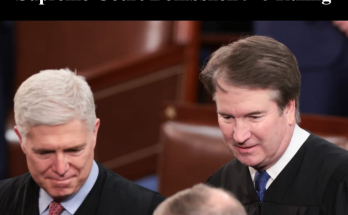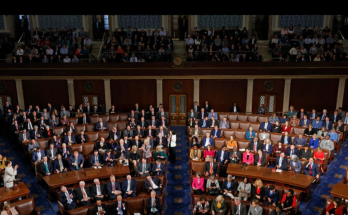Previously, the DOJ had obstructed a comparable initiative in Texas by threatening legal measures and has already progressed with a related lawsuit in Kentucky, as reported by The Blaze on Friday.
“No state should be permitted to treat Americans as second-class citizens in their own nation by providing financial advantages to illegal aliens,” stated Attorney General Pam Bondi in a declaration regarding the Minnesota lawsuit.
“The Department of Justice has already achieved success on this precise matter in Texas, and we are eager to extend this battle to Minnesota to safeguard the rights of American citizens first,” she further remarked.
As reported by Politico, undocumented immigrants in Minnesota qualify for in-state tuition rates and state financial assistance under the Minnesota Dream Act, which was established in 2013 under a prior Democratic governor.
The DOJ’s lawsuit asserts that the program discriminates against U.S. citizens, as noted by the outlet. “The extent of this discrimination against U.S. citizens is considerable,” stated a communication from the DOJ. “The tuition costs for resident students are significantly lower than those for U.S. citizens who are not in-state residents.”
The lawsuit also identifies the Minnesota Office of Higher Education and State Attorney General Keith Ellison as defendants. This action follows an executive order issued by President Donald Trump in April, which directed federal agencies to identify and eliminate “laws, regulations, policies, and practices” that favor undocumented immigrants over U.S. citizens.
Walz, who was the Democratic vice-presidential candidate in the party’s unsuccessful campaign of 2024, has since remarked that the nation “was not prepared” for the message he and his running mate were advocating, as reported by The Blaze.
In the meantime, Bondi rejoiced over a couple of landmark victories at the U.S. Supreme Court on Friday.
“Today, the Supreme Court directed district courts to CEASE the relentless wave of nationwide injunctions against President Trump. This achievement would not have been feasible without the dedicated efforts of our outstanding lawyers @TheJusticeDept and our Solicitor General John Sauer. This Department of Justice will persist in vigorously defending @POTUS’s policies and his authority to execute them,” Bondi stated on X.
The Supreme Court curtailed federal judges’ capacity to obstruct executive actions across the nation through nationwide injunctions. The court’s 6-3 ruling, with all six justices appointed by the GOP in agreement, represents a considerable setback for those challenging Trump’s executive orders and other initiatives, many of which have faced obstruction or delays from lower district courts.
Nationwide injunctions prevent the government from enforcing a law, regulation, or policy throughout the United States, rather than solely against the individual parties involved in the litigation or in the jurisdictions where they are granted.
The prohibition on nationwide injunctions in most instances was issued concerning Trump’s initial executive order that blocked birthright citizenship. Margot Cleveland from The Federalist clarified: “The US Supreme Court permits Trump’s executive order limiting birthright citizenship to be implemented in certain regions of the country for the time being by restricting federal judges’ capacity to obstruct the president’s policies on a national scale.”
On Friday, following the ruling, Bondi stated that the Supreme Court is expected to resolve the birthright citizenship matter definitively during their upcoming session, which commences in October. The justices listened to oral arguments in the case in May after three lower federal courts had issued nationwide injunctions against the enforcement of the order’s implementation.
In his directive, Trump asserted that the provision of the 14th Amendment, which grants U.S. citizenship to children born on American soil, is applicable only to those who have at least one parent that is a citizen or a permanent resident.
Should it be enacted, Trump’s policy would prevent citizenship at birth for an estimated 255,000 infants born each year in the U.S. to illegal immigrants or temporary visa holders, as reported by the Migration Policy Institute.



